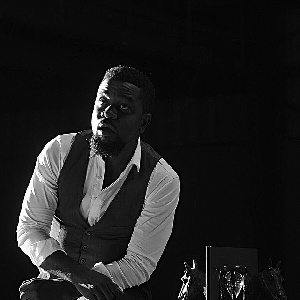Popular music has always provided the score for daily life. There is music to cover falling in love, heartbreak and every other emotion in between. Music has also always been a vehicle for social commentary.
Ghana's musical reputation was built on Highlife, a melodic genre of music that began to spread across west Africa in the 1930s and provided commentary on the age. Today the culture persists even though the sound has changed.
From Boko Haram to gender inequality and corrupt leaders, Ghana's biggest musicians aren't just making beats, they are scoring intellectual points. If you've been looking for music that puts the world to rights, look no further than these gems.
FOKN Bois: Wanlov: "For us [FOKN Bois] is freedom. It's freedom to say the darkest things we feel like saying and making fun of."
Mensa: "We're really just taking the moment and having fun, but yeah, I guess there is always something underneath."
Wiyaala: "Women can never be compared to men and men can never be compared to women. God has given women power, power that even men are jealous for, but we are not using it well. We go to school and say we are equal but do nothing to show [it]. If I am a singer and act right, encouraging people to act right, a man sitting somewhere will give me the needed respect. If I do not act right, why will the person respect me? We have the charm to store and give life. Women are very special."
Sarkodie: "I'm a citizen, so when something hits me, I think I have the right to talk about it. I think that the country is facing a hard time now... the country is living in crisis, the prices are going up... I don't see the difference [between presidents], they keep corrupting, one after the other."
Jojo Abot: "A woman's right [is] to choose. This EP acknowledges the burdens and expectations placed on us culturally and traditionally but to an even greater extent, it acknowledges our right as women to choose and to seek happiness in every aspect of our lives."
King Ayisoba: "I see myself [...] as a preacher. I talk with life stories, what happened, what people forget... I have to say it."
Entertainment of Wednesday, 28 October 2015
Source: edition.cnn.com













